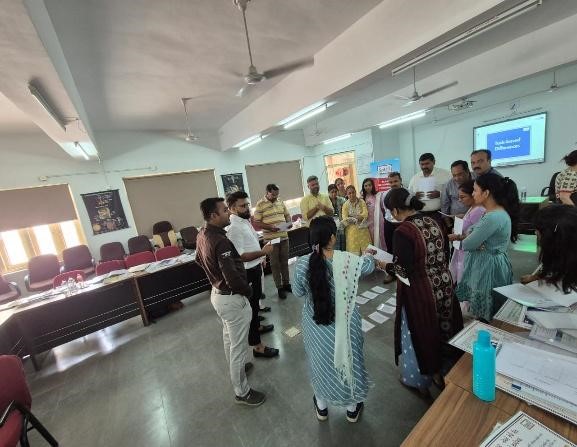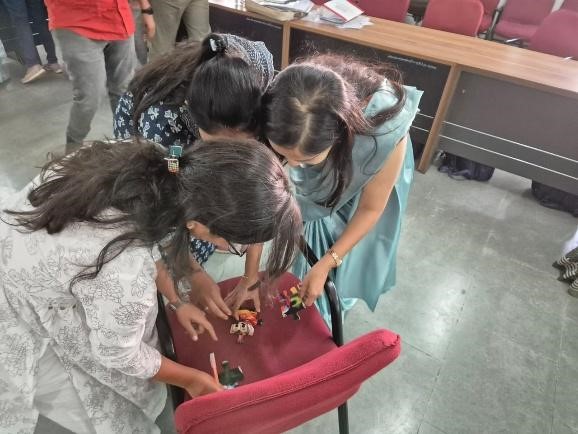Evaluation of the Sathi intervention
The objective of the Sathi pilot being implemented at Bhavnagar, Gujarat is to improve the team dynamics at sub-health centres (SHC) through a structured intervention using mentoring approach. The pilot is planned to be assessed through process and outcome evaluation.
The outcome evaluation study design is quasi experimental comparing intervention SHC facilities with control SHC facilities. The pilot effect will be estimated by comparing outcome scores before and after the pilot in intervention and control SHC facilities.
The outcomes of interest are:
- Team dynamics using likert type scales. Includes items for shared understanding, team competencies and processes for “soft skills”, team behavioral performance outcomes and team performance outcomes.
- Structural quality of facilities using service availability and readiness assessments.
- Service coverage rates for (a) hypertension and diabetes screening among adults aged over 30 years and (b) proportion of zero dose children
The baseline evaluation for Sathi pilot has been completed in the period of September-November 2024, and involved the following:
- Measuring team dynamics using a scale: A key outcome of the team mentoring intervention is improvement in team dynamics. The same is proposed to be measured at baseline and endline, across intervention and control SHC facilities using an existing scale. Steps adopted were as follows-
- Scale development: An existing scale obtained from the literature review was adapted to primary health care and the SHC team context in intervention settings, through expert consultation. Content validity was determined through expert consultations and the scale was revised. Translation to Gujarati and back-translation to English was done for quality check on the translation.
- Pre-testing: The Gujarati tool was tested in four SHCs in Gandhinagar and four SHCs in Bhavnagar by the IPSI team. Cognitive interviews were conducted with 2-3 members of these SHC teams to understand their perceptions on whether the items are representative of the domain and the need for additional items in each domain. Based on the findings of the pre-testing, the scale was revised.
- Training of investigators: Training sessions were conducted by the IIPHG team. The training was held in Gandhinagar from 26th to 28th September 2024. The sessions covered essential topics, including the Health and Wellness Center (HWC) program, Sathi interventions, research ethics, introduction to scales, and administering the scale.
- Data Collection: Data was collected from 40 facilities (20 intervention facilities and 20 control facilities) across five blocks of Bhavnagar district in the month of October.
- Analysis: To test psychometric properties of the scale in the context of the intervention, principal component analysis will be used.
- Facility service availability and readiness assessment survey: The objective of the survey is to evaluate the service availability and readiness at SHCs to provide 12 service packages. Steps undertaken were as follows:
- Tool development: A structured questionnaire was developed adapted from the WHO ‘Service Availability and Readiness Assessment’ (SARA) survey.
- Training of field investigators: The training was held from 7th to 9th, November 2024, at the Government Nursing College, Bhavnagar facilitated by IPSI team (JHU and IIPH-G). This comprehensive two-day training program covered essential topics, including the Health and Wellness Center (HWC) program, mentoring interventions, research ethics, and survey planning. Participants received hands-on training in utilizing Epicollect for data collection and practiced data entry using dummy data. To provide practical exposure, two pilot tests were conducted
- Pilot Testing: Following training, data collectors piloted the survey at four facilities—Vavdi, Bhuteshwar, Sanesh, and Budhel-2—in Bhavnagar district. Tool was revised after the pre-testing.
- Data Collection: Data collection was carried out across 40 facilities in the month of November.
- Data Analysis: The data will be analysed to present the ‘General service availability scores’ and ‘Service package specific availability and readiness scores’ for the intervention and control facilities.



